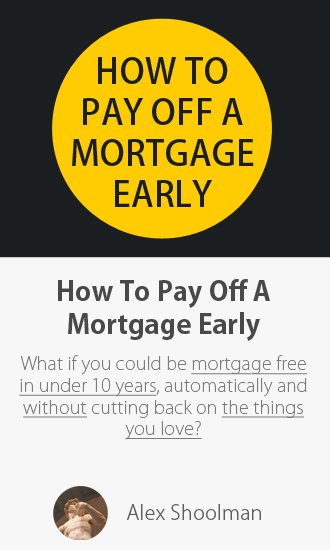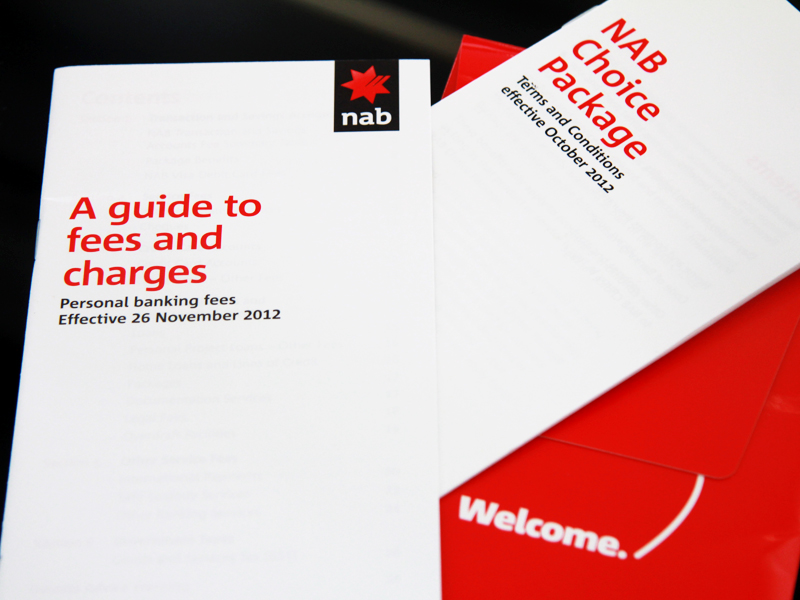Speaking with an Australian Home Loan Specialist that’s been in the industry for years, I’ve done a bit of an investigation to find out how things operate from the other side. Asking the questions to find out what is the best way to get what you want and how to help them out too.
Want a better rate? Fee discounts? Guess what! There are simple and legal ways to get what you want when you next refinance your loan or even when you’re signing up to a new one for the first time.
Basic Things Applicants Should Know:
Know your leverage. When dealing with banks an applicant should know before they walk in the door what their leverage is and what place they hold on the “finance ladder”. Are you a FHB wanting to borrow $200,000? Well I’m afraid you’re not very important to the bank. It might sound unfair but that’s just life I’m afraid, there’s not much money to be made off of your business. If you’re refinancing to an upgraded house and want to borrow $900,000 as well as take out additional products such as credit cards or home and contents insurance, then look out! You can demand what others can’t. Through hearing numerous clients come in off the street and discuss what they’ve been offered by other banks over and over again, it’s pretty clear what the big four banks will currently offer off their Standard Variable Rate (SVR) depending on your loan size:
| Your Loan Size: | Max Expected Discount Off SVR: |
| < $399,999 | Up to 0.7% |
| $400,000 to $999,999 | Up to 0.9% |
| $1,000,000+ | Up to 1.1% |
Now, the above table is a VERY rough guide line regarding what our specialist sees on a regular basis. They are not hard and fast rules, just general trends that they have witnessed over many years and things can and do change over time. For example, they can recall customers with $1,000,000 loans negotiating rates that are 1.1% below the SVR of what the big four banks are offering at the time. Whilst they might not work 100% for you, they should serve as guide lines for what to aim for. Know that if you’re only needing a $200,000 loan that it’s very unlikely you’ll be able to negotiate any rate better than their SVR – 0.7%. Always try though!*
Tell, don’t ask. When discussing these rates be sure to sound confident and TELL them that you expect this rate, do not ask. You need to be direct and firm, but polite in letting them know that you aren’t a sucker and you’re not going to accept the SVR or even 0.2% off that, you’re here to play ball but their reward will be a fast, new customer to sign up. Always remain polite and courteous, you get more bee’s with honey and all that
Time is money. The longer you as a customer spend going back and forth between banks or other financial institutions, as well as coming back to continuously recheck what the existing lender can do for you, the less chance there will be the home loan specialist will want to deal with you (or give you a great rate) because you have been wasting their time. Time is money and there will be someone else that’s easier to sell to so unless they can guarantee some additional sales off you, you’ll find it pretty hard going.
Ask your existing lender first. This might be an obvious one, but it can save weeks and hundreds of dollars. Have you found that NAB’s offering you a better rate? Get the information, get a printed out offer from them and take it to your own bank saying “NAB’s offering XYZ, better it or I’m leaving“. Again, you should have done a decent amount of work before walking in the door to discuss this. Your bank KNOWS that it can cost a lot of money to transfer from one loan to another and they’ll do the calculations and potentially use that to prove that your “offer” isn’t as good as it sounds. They will also know what the other banks are able to provide.
For example if you have a $200,000 loan with Westpac at 6% and NAB offers you a rate of 5.8%, that 0.2% of a difference will only mean $200,000 * 0.002 = $400 in interest saved per year. Now that’s a great saving, but if NAB is charging you $395 per year to get that rate, when you go and ask Westpac for the same 5.8% rate they’re not going to offer it because they know there’s nothing to compete with and they’ll likely explain this to you in the hopes that you’ll stay. So do your homework and make sure that before you ask your existing lender if they’ll match your rate that you’ve covered all the bases including annual fees, monthly fees, refinancing costs and government charges.
Banks LOVE signing you up to their other products.
Banks will go to bottom if they get the deal. They just balance their books at the branch by selling more insurances and credit cards.
Whilst I never encourage people to sign up to extra products like insurances, financial planning services, credit cards and so on, the specialists can get bonuses when they sign you up to them so it’s possible to use this to your advantage. If you’re already responsibly using a credit card at your current bank, let them know that they’ll be able to get that business too but that you’d like the home loan rate to be dropped a little because of it. This type of thinking is key to proper negotiation, they get something and you get something, everyone wins.
Assume the establishment fees will be waive. Be shocked if they’re not. Normally banks have administration fees, settlement fees, valuation fees etc when you start up a loan with them. According to our specialist, go in assuming that all these fees will be waived for you. If they’re not willing to do it, be shocked, stunned and disappointed about it, don’t be angry as this will only force them to get defensive but if you’ve done your research you should likely be able to pull out some facts from competitors that are waiving these fees (such as NAB as of writing this article). Depending on how desperate the bank is, you may even be able to negotiate them paying YOU money to sign up. Banks have been known to pay upwards of $700 to get you on board so don’t by any means think that you have to pay these “start up” costs.
Be aware of cross sales. Cross sales are the products the bank sells to you WITH the home loan. A Credit Card for instance is a cross sale, so is Home and Contents Insurance. This is where the banks (and the specialists) make a lot of their profits and commission.
Sometimes you’ll have [cross sales] conversion targets, and it works out better for you to NOT do the loan and keep your conversion up.
If it looks like the specialist is being unfair considering what your research shows, simply walk away. Perhaps come back another day or go to a different branch as each branch and each person will have their own targets and you will sooner or later find someone who’s willing to budge a bit.
Don’t assume you need to take on a loan from one of the four major banks. There are many other lenders out there, all covered by the same government backed guarantees as the big four banks. A lot of them offer better rates – even after the “big discounts” ANZ or Westpac might give you so make sure you show around and consider ALL your options. You may not have the same ability to have all your start up fee’s waived, however the smaller lenders are usually fairer with ongoing fees, so you may find it to be a lower cost option in the long run.
For example in my researching and negotiation I found that there are various building societies and credit unions that aren’t part of the “big four” banks but are still covered by all the same government backed guarantees. One of them is CUA, who are currently selling thier Rate Breaker package. Whilst they don’t have all the clout of ANZ or NAB, they will offer you up front a “1% discount off the average advertised standard variable home loan rate of the big four banks”. There’s very little need to do any hard negotiation because they’re already giving you such a fantastic rate. When I took this information to our current home loan bank (CBA) they didn’t even BOTHER trying to compete saying that they “can’t compete with rates on loans at credit unions”!
A Little Bit About The Meeting
You may be fully focussed on yourself and getting your home loan at the lowest rate possible, but stop for a minute and think about the specialist you’re going in to talk to. They’re the ones with the keys and they’re the ones you have to befriend and make life easy for. They only care about you so much as you can make them a sale I’m afraid but this doesn’t mean you can’t use it to your advantage. Always ask yourself “How can I help THEM?”. What can YOU do as a customer so that it makes THEIR life easier? Now this is in stark contrast to how most people automatically think:
I’m the customer and I’m ALWAYS right!
WRONG.
You might be “right”… but it sure as hell isn’t going to get you the best rate or even a good deal for that matter. They are a person too and just like you or I, might be having a crappy day. They will have sales targets they have to meet and if they don’t it’ll reflect badly on their performance. They are forced to sell a certain number of Credit Cards or Home and Contents Insurances or Financial Planning services each month and these things will be prime on their mind when you walk in.
You want one thing, they want something else.
When you walk in smile. Be a pleasant and kind person to talk to. Know that they are going to try to get you to pay establishment fees or settle on the SVR, don’t get angry when they “assume” these things, just talk calmly, point out to them that this other bank XYZ is offering better than they are and make it clear that they should match it. If they say it can’t be done, perhaps be disappointed but try and see if they can’t make up for it in another area. For example they might not be able to waive the $395 annual fee on a package plan forever, but could they at least not charge it for the first two years?
Always keep in mind that they might be having a crap day. They might have just broken up, be having money troubles, be stressed or simply just be sick of dealing with customers in general. Many complain that “this job would be great if it wasn’t for the damn customers” and yet we (as a customer) always expect to be treated like Gods. A true negotiation should get BOTH parties what they desire, fairly. You should be able to leave with a low interest rate, no or minimal annual fees and they should be able to leave with a new customer sign up and maybe even a new Credit Card sign up. It is NOT aggressive, it is NOT argumentative. It’s a pleasant grown up conversation that should make both you and the home loan specialist’s day better.
One final note from our specialist is that you should also be prepared for the home loan specialist to be a highly skilled salesman, usually having been sent to many different training courses to better prepare them to “close the deal”.
What’s The Perfect Customer?
Someone who is upfront, honest and provides the information I require in a timely manner. You can tell honesty in a split second
Even though this might seem like a simple answer, in order to get to this point you should have well and truly done your research before you even walk in the door. Know your current home loan, know what OTHER banks are offering and know how your numbers all work out when you take into account fees, closing costs and so on. This way you make it clear that you’re here to play game, you’re quick, have all the information they will need and are being 100% upfront and honest with them. No mucking around.
Secretive customers, in my experiences, are the ones you try the least hardest for, as you know they probably aren’t serious
Come well prepared, be timely and be honest.
*A note from the home loan specialist here is that this stiff competition is definitely not a consistent thing over many years. Discounting has changed a lot recently as the market is slow and banks are trying to buy up more market share.
The benefits include: 1) How to pay off your mortgage faster than 99% of people with one hour a month of work 2) How to get rid of your debt and have the freedom to spend money on the things you love, guilt free 3) Clear outline of how to setup your expenses, mortgage and general finance 4) How offset accounts work and how to get the same result without being gouged by the big banks 5) How to cut through the crap and focus on the things that truly matter when taking down a mortgage 6) How to adjust the strategy so it works for you, even if you have kids, even if you only have one income 7) How to do all of these things and maintain a normal social life (and never be cheap).


